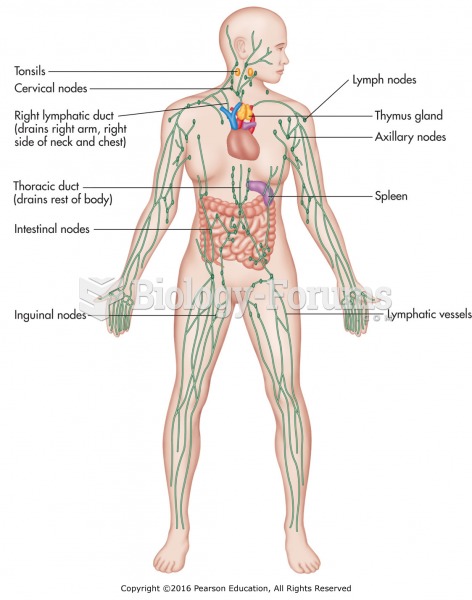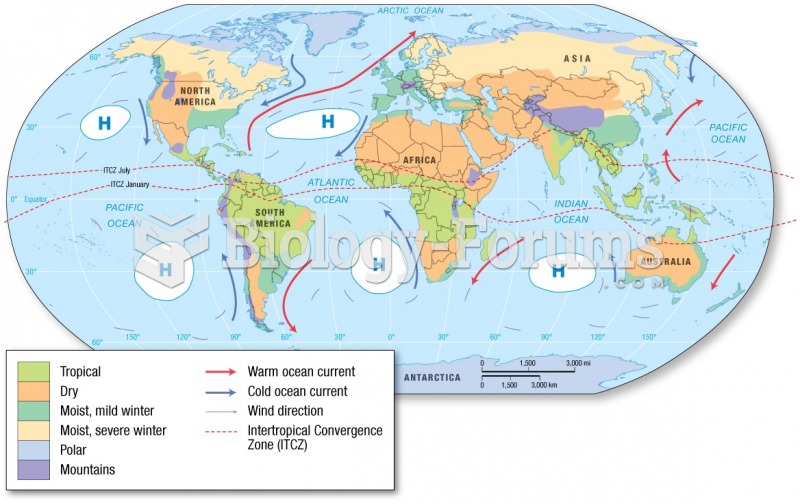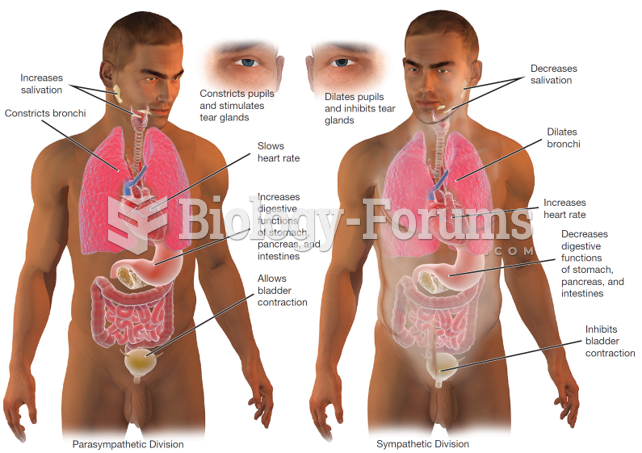|
|
|
Did you know?
On average, the stomach produces 2 L of hydrochloric acid per day.
Did you know?
There are over 65,000 known species of protozoa. About 10,000 species are parasitic.
Did you know?
For pediatric patients, intravenous fluids are the most commonly cited products involved in medication errors that are reported to the USP.
Did you know?
Green tea is able to stop the scent of garlic or onion from causing bad breath.
Did you know?
Anti-aging claims should not ever be believed. There is no supplement, medication, or any other substance that has been proven to slow or stop the aging process.







